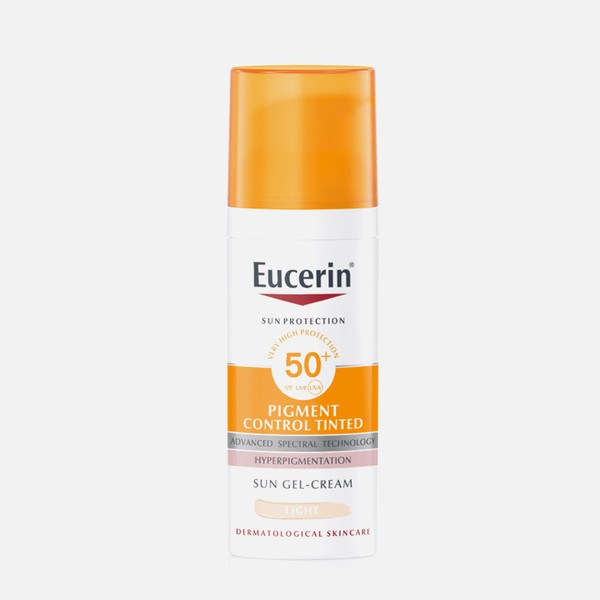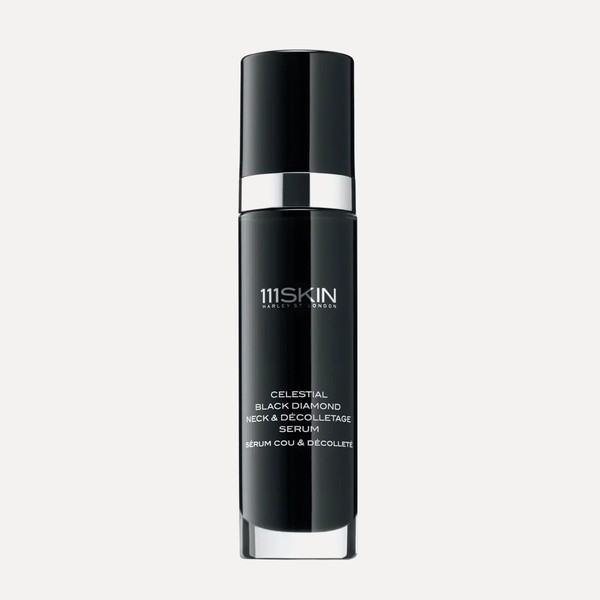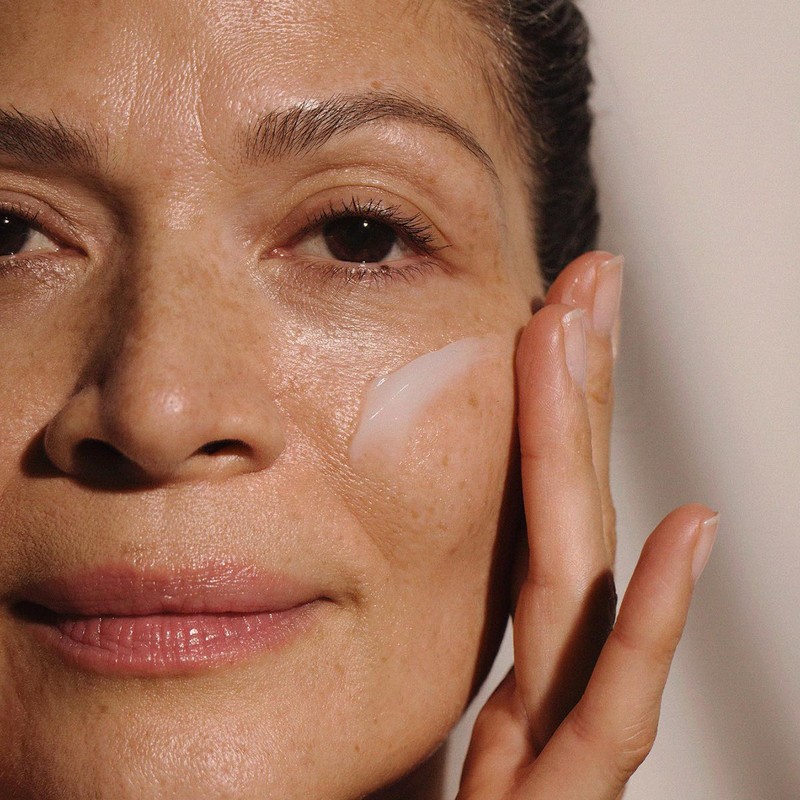
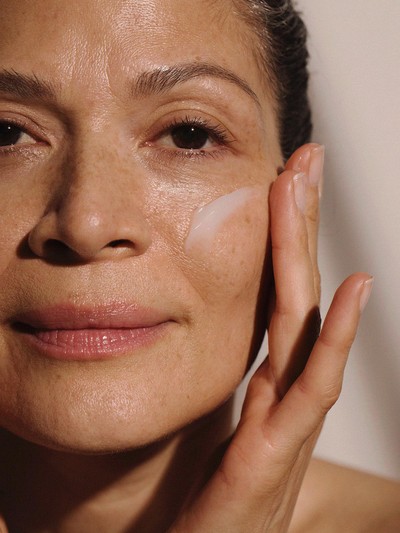
Your Top Anti-Ageing Questions Answered By The Skin Experts
Q: Let’s Start With Ingredients – Which Are Best For Anti-Ageing & Why?
A: “There are lots of great ingredients out there for anti-ageing but three in particular stand out if you’re looking to create a routine that firms, smooths and tones skin. For starters, vitamin C is essential. It’s a powerful antioxidant which means it can combat the skin-stressing effects of UV exposure and pollution. It also works brilliantly to brighten skin and encourage better collagen production. Speaking of collagen, another great ingredient is peptides. These are small chains of amino acids that act like little messages within the skin, stimulating elastin production and reducing inflammation. Finally, a serum or moisturiser that features retinol is well worth investing in to promote better skin texture, smoothness and overall tone.” – Dr Alexis Granite, Board-Certified Consultant Dermatologist
“Retinol is actually proven to improve your skin health. With regular use over several months, you will find it helps boost your collagen production and cell turnover to produce new, healthier skin cells. As a result, your complexion will have better texture and colour. Typical ingredients aside, however, I cannot stress enough that one of the best ways to prevent both ageing and damage is the daily use of SPF. Prevention is always easier – and cheaper – than a cure. It’s never too late to start incorporating it properly into your routine.” – Debbie Thomas, Skin Professional & Laser Expert
Q: If You’re Feeling Overwhelmed, What Should A Good Anti-Ageing Routine Look Like?
A: “As a starting point, it’s best to nail down the three basics of your routine – for instance, a cleanser (twice daily) a moisturiser (twice daily) and an SPF which should always be applied as the last step in your morning routine. I like the ‘two-finger’ rule for SPF application. Two strips of sunscreen along your middle and index fingers should be enough to cover your face and neck. Once you have these three steps nailed, you can begin incorporating active ingredients – like the above – to target specific concerns. I recommend most people begin with an antioxidant serum (with vitamin C inside) for the morning and ideally a retinol-based serum at night.” – Dr Alexis
Q: When It Comes To Products, Just How Effective Are They Compared To Invasive Treatments?
A: “Certain products with the above ingredients will absolutely do the job of supporting your skin. They will provide both repair and correction, which will reverse some of the visible signs of ageing. But it’s worth noting that their role is to prevent and maintain, keeping the skin at optimal health. So, you won’t find a facelift within a jar, but consistent use of the right ingredients will certainly help to slow down the ageing process. Consistency is key though – just applying things here and there won’t work.” – Debbie
Q: Would You Say At A Certain Age, It’s Too Late To Start An Anti-Ageing Routine?
A: “Absolutely not. This is a common myth I hear that the older you get, the less it’s worth making an effort. The truth is you should start as soon as you can – you will always reap some benefit from targeted, active skincare, specifically if – as Debbie says – you’re working hard to keep your routine consistent.” – Alexis
Q: Is It True That Hormones Can Affect The Ageing Of Our Skin?
A: “This is a minefield topic that we are only now starting to scratch the surface of. Without a doubt, hormones play an essential role in every aspect of our body’s health. From mental to physical, hormones are key in how we look and feel. I am a huge advocate of people getting hormone support as early as possible – in other words, not waiting for the obvious signs of perimenopause to hit. We can all benefit from hormone support, whether that is through a hormone-friendly diet or via supplements and HRT. I see Dr Kishan Rajni who specialises in functional medicine, combining a holistic wellness approach with traditional medicine, and I can’t recommend him enough.” – Debbie
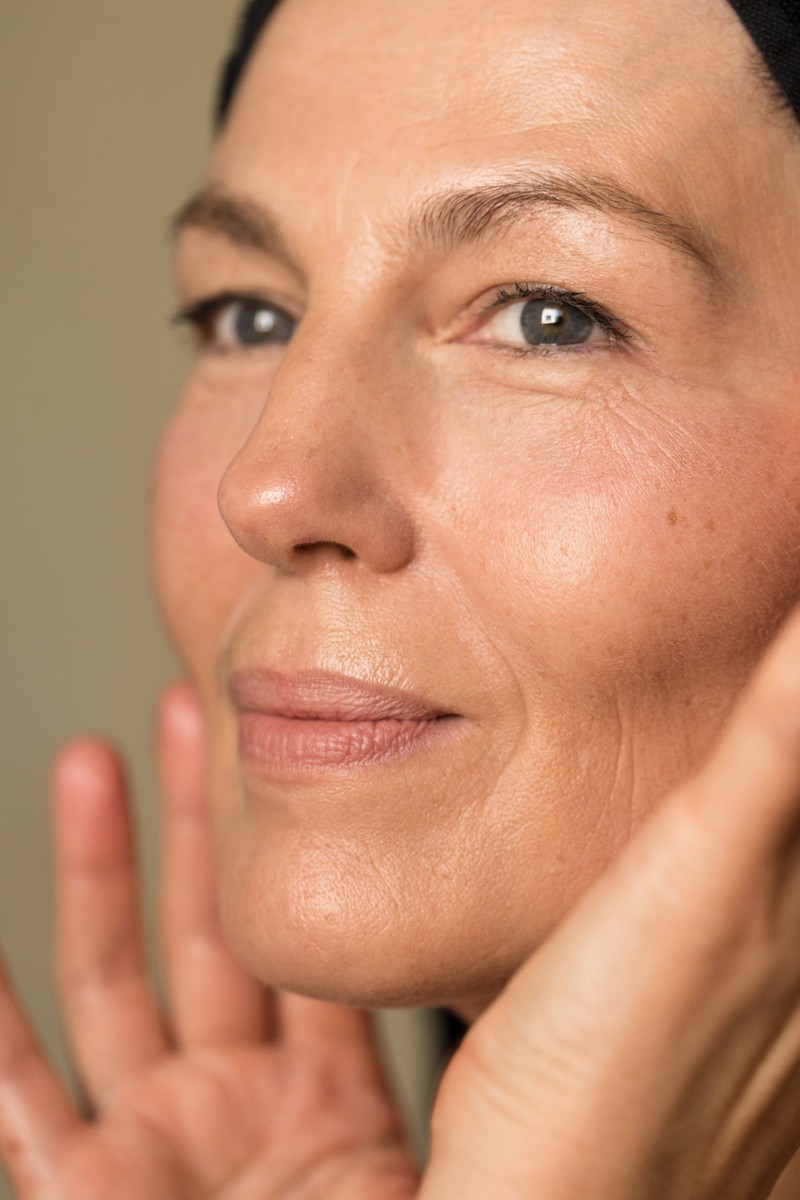
Q: What Do You Recommend For Wrinkles Around The Eye Area?
A: “Hydration is key as it will keep this very delicate area of skin looking plump and fresh. That’s why hyaluronic acid-based creams or serums are so beneficial. I also recommend eye creams that contain peptides – the latter is another ingredient that aims to boost your collagen production, but it’s gentle, so you can use it with ease on this sensitive area. If you’re going to use a retinol around the eyes, always start at lower concentrations and gradually increase to suit your needs. Products aside, there are some great treatments available for lines around your eyes. Neurotoxin is widely used to improve dynamic lines, while skin boosters formulated to boost collagen and skin firmness – such as Nucleofill Soft – are another great option. Lasers, including Tixel, Moxi and CO2 laser, are worth trying too – at a clinic.” – Alexis
Q: Are There Any Natural Ways To Reduce Wrinkles? Or Is This Also A Myth?
A: “SPF is your easiest win as early as you can. When it comes to ‘natural’ prevention, it’s difficult unless you can stop some of your facial movements. What you can do, however, is ensure you’re staying healthy on the inside to support the health of your skin on the outside. For instance, it’s boring, but it’s a fact that excess sugar consumption is tied to depleting collagen levels. Eating the wrong foods can reduce both the elasticity and bounce of your skin. This is because sugar causes inflammation within, which speeds up all the signs of ageing. Diet has a huge impact on your complexion, so it’s an area you can certainly control ‘naturally’ without doing anything too invasive.” – Debbie
Q: Can Pigmentation & Age Spots Ever Truly Fade?
A: “If you want to fade pigmentation and age spots, the best solution is to incorporate the right skincare with some in-office procedures, like laser treatment. As for skincare, look to ingredients such as vitamin C, azaleic acid, arbutin and kojic acid. These will all help to reduce the appearance of pigmentation and age spots. This type of skincare paired with treatments like chemical peels, IPL and MOXI laser can work well to fade pigmentation – of course, with a good dose of SPF too.” – Alexis
Q: Do Décolletage Creams Actually Work? Or Is It All Marketing Hype?
“Décolletage creams can be helpful in improving skin quality, but the reality is, you can just extend your facial skincare down to your neck and chest. This will help you reap the benefits of active ingredients in this area. Vitamin C, niacinamide and kojic acid will all help to even out your skin tone in this area, while peptides and retinol will boost your skin’s tone and elastin levels. I personally like iS Clinical’s Neck Perfect Complex and 111Skin’s Celestial Black Diamond Neck and Décolletage Serum. Ultherapy is also a very effective treatment for this area.” – Alexis
Q: Finally, Do You Recommend The Use Of LED Masks At Home? Can They Make A Difference?
A: “Yes. Though costly, these LED masks can be hugely beneficial for smoother, firmer-looking skin. They work by supporting your collagen production and reducing inflammation within your skin. The red light helps to boost better elastin, while blue light takes down inflammation to improve breakouts and yellow light stimulates the production of red blood cells, improving circulation for a fresher glow. You can get masks with green light too – this helps reduce pigmentation and dullness. LED masks are safe to use daily but, like anything, you just need to use one consistently to see optimum results. Always ensure you’re buying one that is FDA-cleared.” – Alexis
Follow @DrAlexisGranite & @DebbieThomasOffical on Instagram.
SHOP OUR FAVOURITE ANTI-AGEING PRODCUTS BELOW
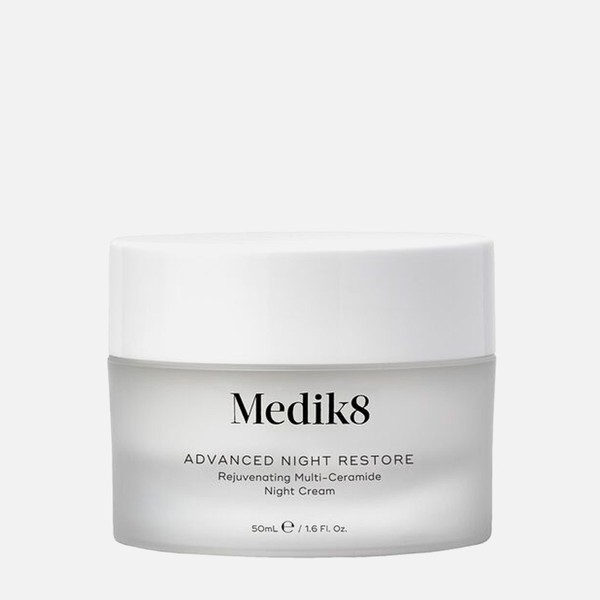
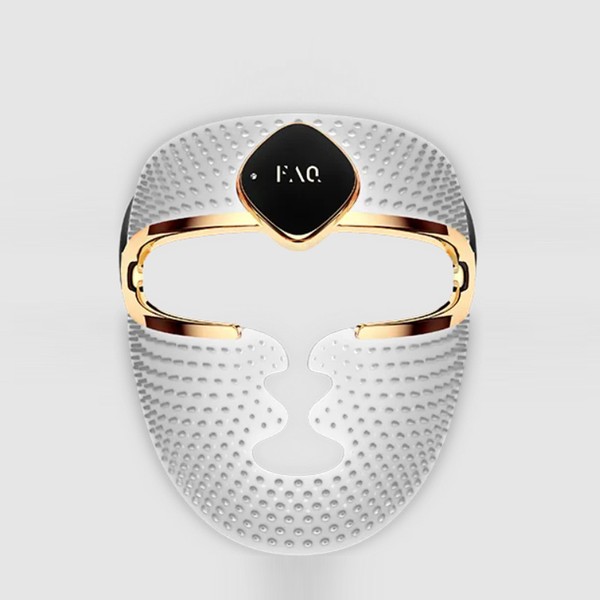
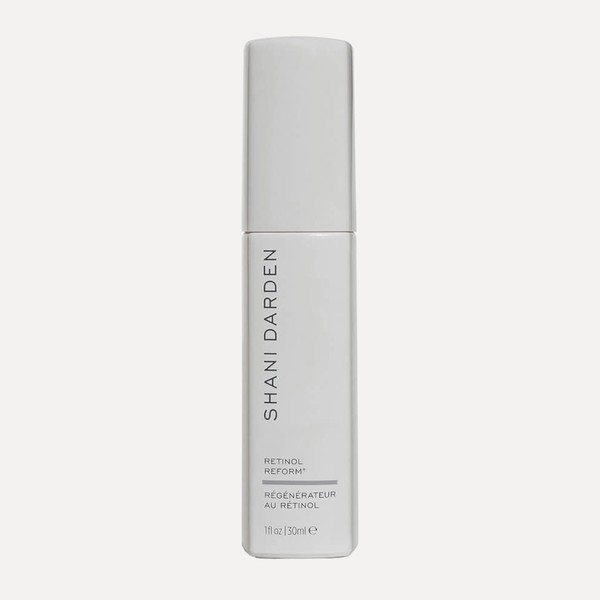
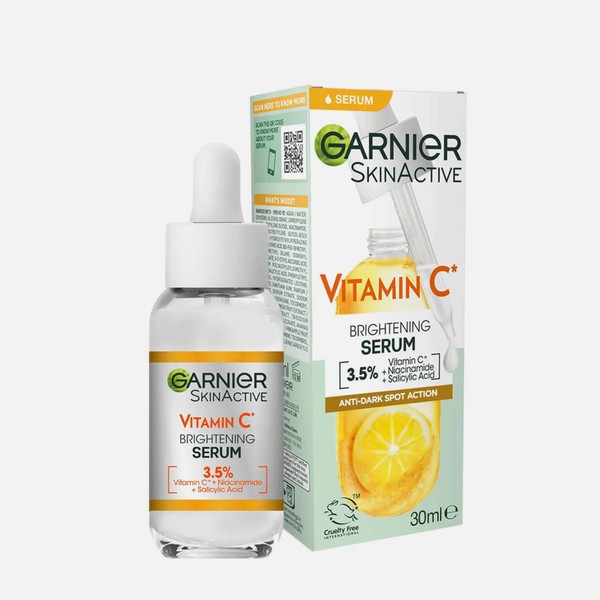
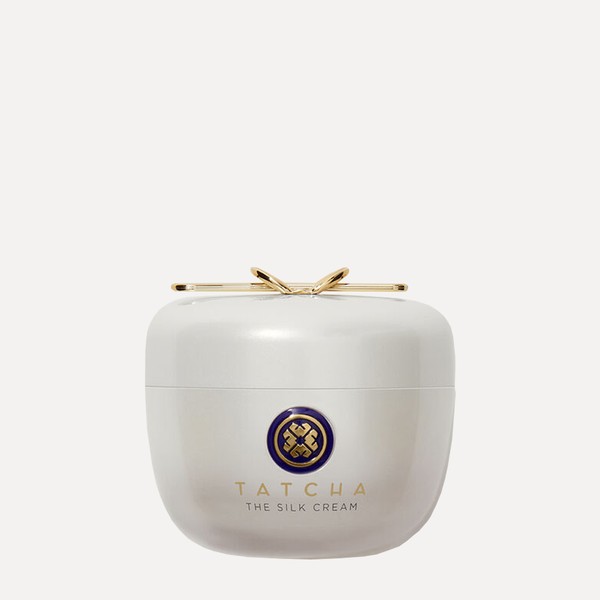
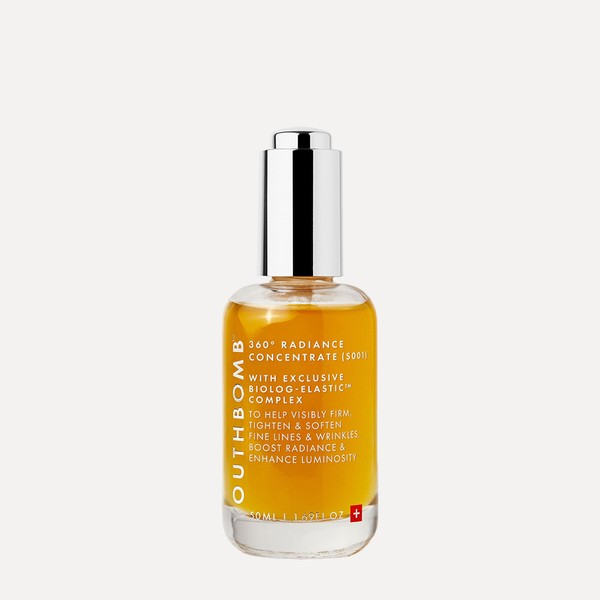
DISCLAIMER: We endeavour to always credit the correct original source of every image we use. If you think a credit may be incorrect, please contact us at info@sheerluxe.com.
